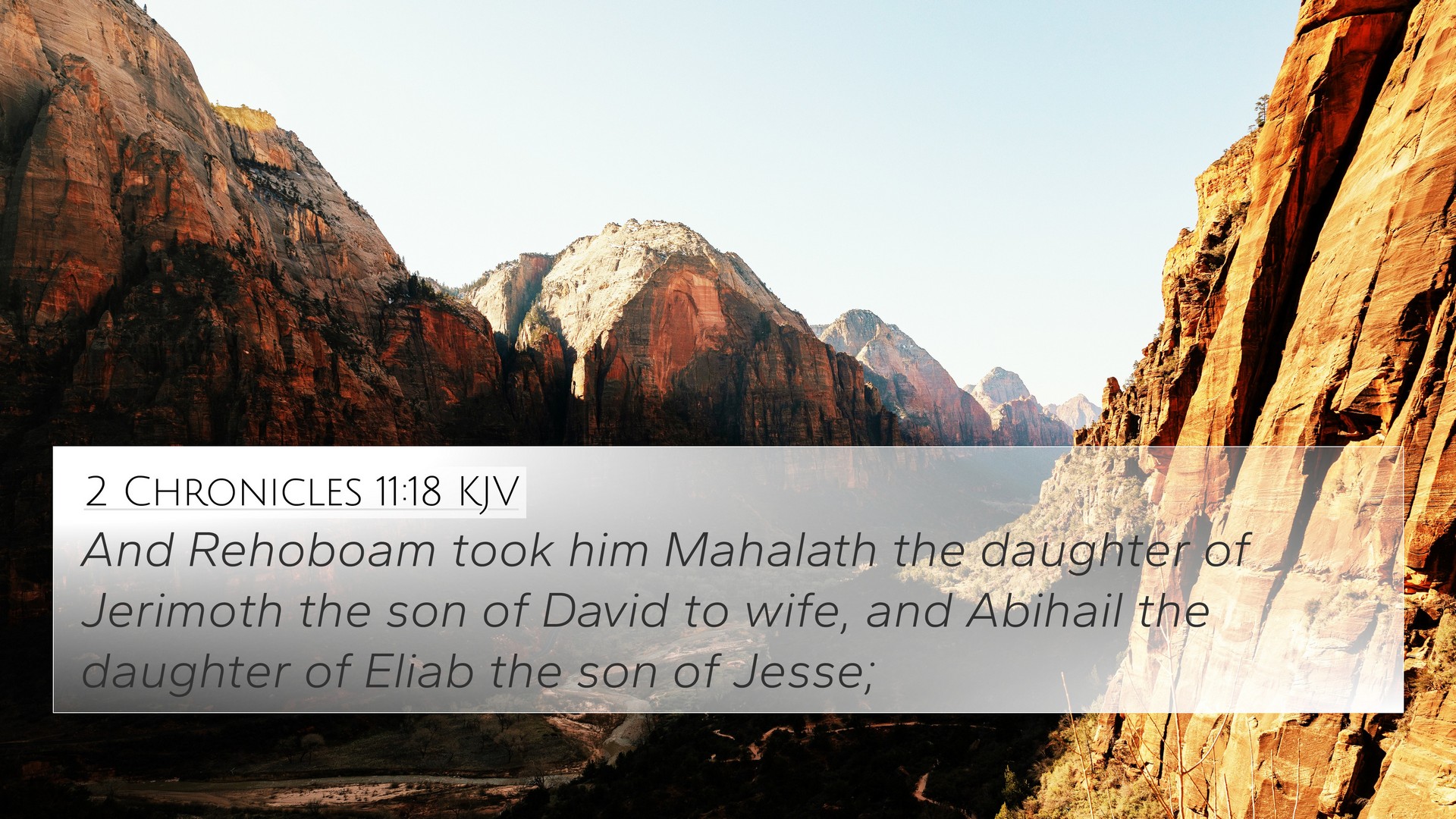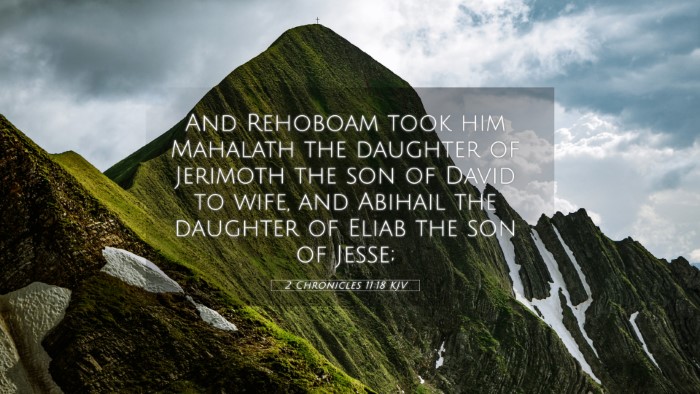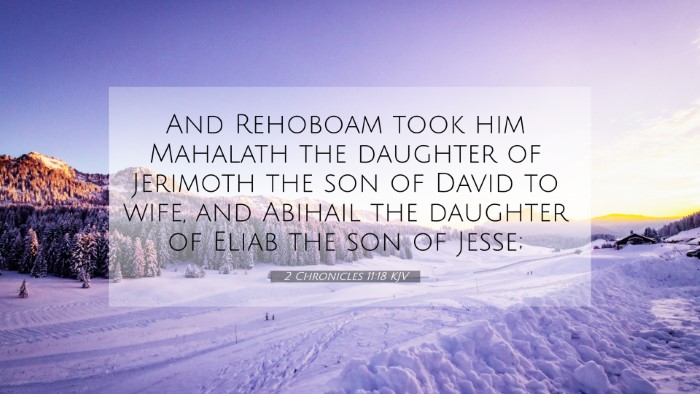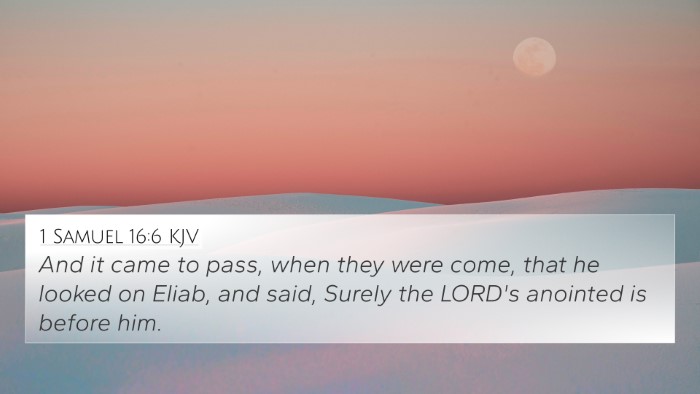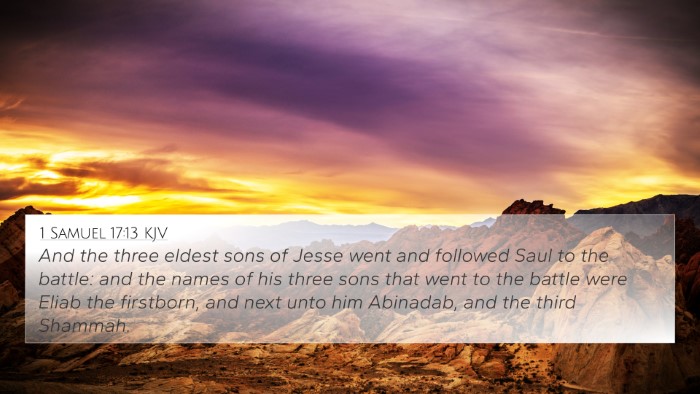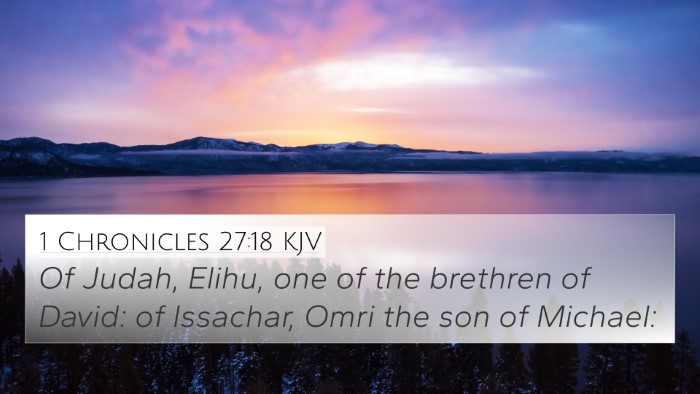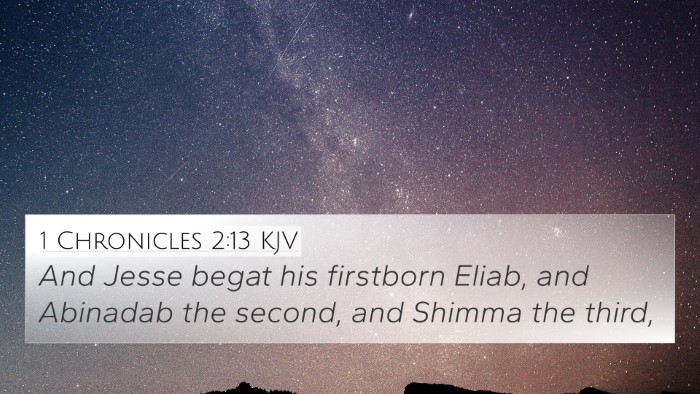Understanding 2 Chronicles 11:18
2 Chronicles 11:18 recounts the actions of Rehoboam as he established his reign over Judah, specifically referring to his marriage alliances. This verse plays a significant role in highlighting the themes of leadership, wisdom, and the consequences of choices in the biblical narrative.
Verse Context
The context of 2 Chronicles 11 is pivotal in understanding the development of Rehoboam’s character as a king. Following his ascendance to the throne, Rehoboam faced the challenge of unifying a divided kingdom. His choices reflect both the wisdom and folly of kingship.
Commentary Insights
Matthew Henry's Commentary
Matthew Henry points out that Rehoboam took Mahalah, the daughter of a notable figure from the tribe of Judah. Henry emphasizes that this marriage was perhaps politically motivated to solidify alliances. He reflects on the importance of wisdom in making decisions that affect the leadership of a nation.
Albert Barnes' Notes
Albert Barnes elaborates on Rehoboam's surroundings and his advisers. He implies that the king's marital decisions were reflective of his desire to maintain power and control. Barnes highlights the notion that such alliances were commonplace among kings of the time, indicating a blend of personal interest with political strategy.
Adam Clarke's Commentary
Adam Clarke addresses the cultural and historical implications of Rehoboam's marriage. He notes that the choice of a wife was not merely personal but carried significant weight in terms of political association. Clarke further emphasizes that Rehoboam's choices delineate the consequences of blending personal desires with national strategy.
Thematic Connections
The themes of leadership and marital alliances in 2 Chronicles 11:18 can be cross-referenced with various other scriptures to enhance understanding:
- 1 Kings 11:1-2: Discusses Solomon's foreign wives and their influence, linking to Rehoboam's choices.
- 2 Chronicles 13:2: Continues the narrative of Rehoboam's lineage and his role as king.
- 2 Chronicles 10:1: Similar context of Rehoboam's early decisions impacting his reign.
- Ezra 10:3: Discusses the importance of purifying marriages and alliances.
- Nehemiah 13:25: Deals with the consequences of intermarriage on faithfulness to God.
- Jeremiah 22:30: Speaks of the lineage of kings and the significance of each king's decisions.
- Proverbs 12:4: Highlights the implications of a virtuous wife, drawing a parallel to the importance of wise alliances.
- Matthew 1:12: Links the genealogy of Jesus to the house of David, which includes Rehoboam’s lineage.
- Revelation 3:21: Reflects on the theme of overcoming and the rewards of wise decisions.
- Luke 12:48: Discusses the responsibilities of leaders and the consequences associated with their choices.
Conclusion
In summary, 2 Chronicles 11:18 is not merely a historical reference but a crucial point of reflection on the choices made by leaders and their wider implications. Utilizing resources for Bible cross-referencing can enhance one’s understanding of how this verse interacts with the wider biblical narrative. The connections between Bible verses, the linkage of scriptures, and thematic exploration deepen our insight into the wisdom of divine leadership and human choices.
Additional Insights on Cross-Referencing
For those seeking to study this verse further, employing tools for Bible cross-referencing can be beneficial. Such tools include:
- Bible concordance
- Bible cross-reference guide
- Cross-reference Bible study methods
- Bible reference resources
- Bible chain references
Understanding how to use Bible cross-references can greatly enhance one’s study and comprehension of the Scriptures, fostering deeper connections between related themes across the Bible.
